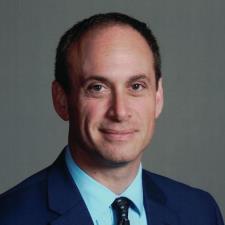
Mark S. answered • 01/26/21
B.A./M.A. Russian Language, linguistics minor, 25+ years teaching exp
Some will, indeed some already have. There are dialects of British English, including some working-class London dialects, in which "I think we'll go with my brother Keith" is pronounced I fink we'll go wiff my bruvva Keeff.
This shift has been seen in other speech communities but is not guaranteed to be a universal shift across the entire language. It is just as likely that those same fricatives could become alveolar or dental stops [θ] > [t] and [ð] > [d], as can already be found in some non-standard dialects. What is likelier than a universal shift to a labio-dental fricative, is that some dialects will shift to the labio-dentals, some will shift to alveolar or dental stops, and some dialects will preserve them as dental fricatives.




